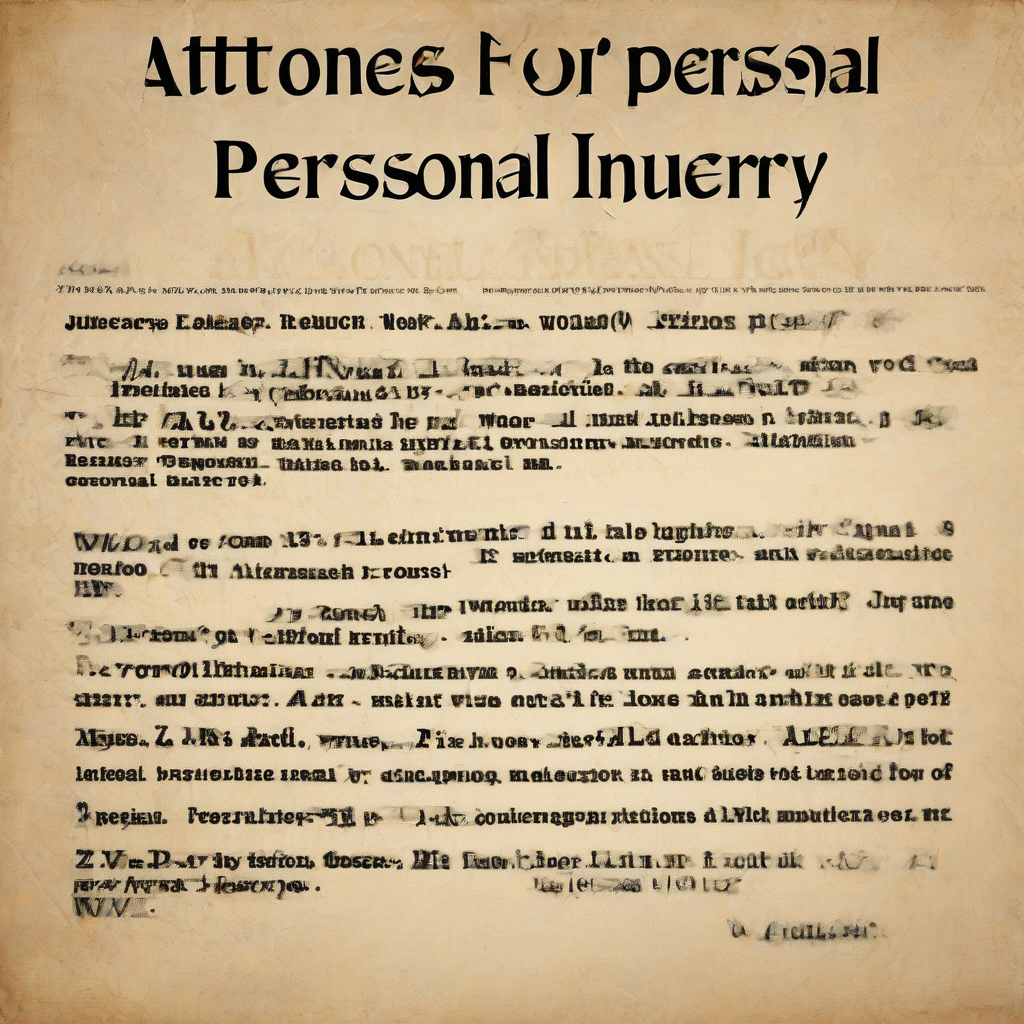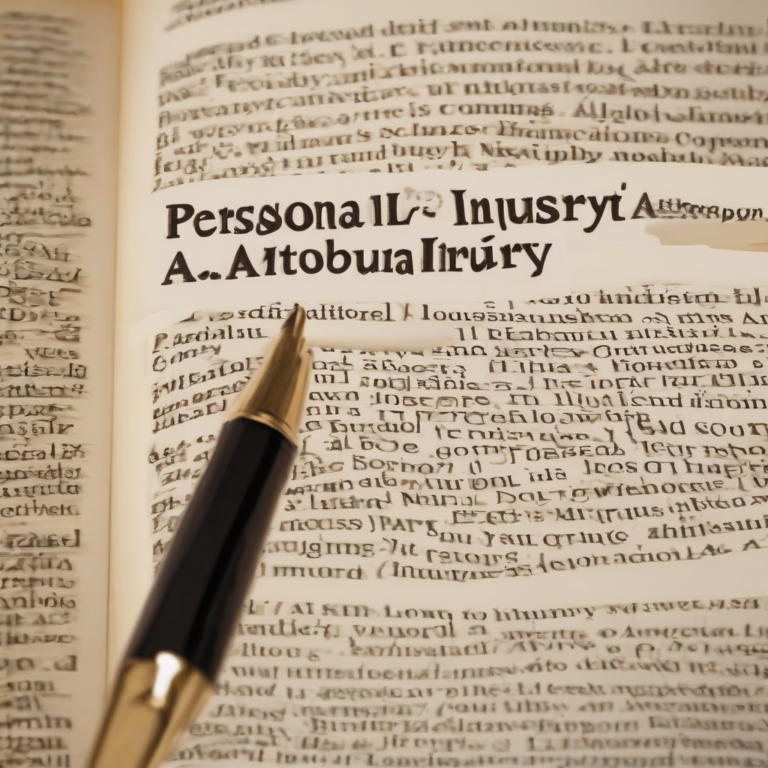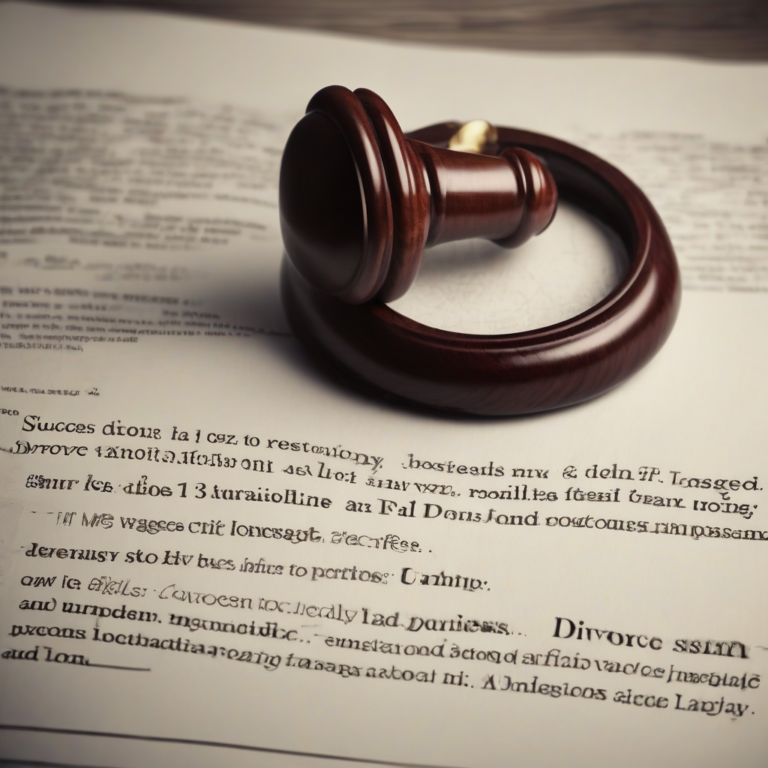
Navigating the Complexities of Personal Injury: Your Guide to Finding the Right Attorney
Suffering a personal injury can be a profoundly disruptive and challenging experience. Beyond the physical pain and emotional distress, navigating the legal complexities of seeking compensation can feel overwhelming. This is where the expertise of a personal injury attorney becomes invaluable. This comprehensive guide explores the crucial role of personal injury attorneys, the process of finding the right one for your needs, and the key factors to consider throughout your case.
Understanding the Role of a Personal Injury Attorney
Personal injury attorneys specialize in representing individuals who have been injured due to the negligence or wrongful actions of others. Their expertise encompasses a wide range of cases, including:
- Car accidents
- Motorcycle accidents
- Truck accidents
- Pedestrian accidents
- Slip and fall accidents
- Medical malpractice
- Product liability
- Dog bites
- Workplace accidents
- Premises liability
These attorneys handle all aspects of the legal process, from initial consultations and investigations to negotiations, litigation, and, if necessary, trial. Their primary goal is to secure the maximum compensation possible for their clients, encompassing medical expenses, lost wages, pain and suffering, and other related damages.
The Importance of Experienced Legal Representation
Navigating the legal system, especially in the context of a personal injury claim, is complex and demanding. Insurance companies often employ sophisticated tactics to minimize payouts. An experienced personal injury attorney possesses the knowledge and resources to effectively counter these strategies and protect your rights. Their expertise includes:
- Thorough investigation: Gathering evidence such as police reports, medical records, witness statements, and photographs to build a strong case.
- Negotiation with insurance companies: Negotiating fair settlements on your behalf, advocating for your best interests.
- Litigation: Preparing and filing lawsuits, representing you in court if a settlement cannot be reached.
- Understanding legal complexities: Interpreting complex legal terminology and procedures, ensuring you understand your rights and options.
- Expert witness testimony: Working with medical professionals and other experts to strengthen your case.
Finding the Right Personal Injury Attorney: Key Considerations
Choosing the right personal injury attorney is a critical decision that can significantly impact the outcome of your case. Here are essential factors to consider:
Experience and Specialization
Look for an attorney with extensive experience in handling personal injury cases similar to yours. Specialization matters. A lawyer specializing in car accidents will likely have a deeper understanding of relevant laws and procedures than a general practitioner.
Reputation and Track Record
Research the attorney’s reputation. Look for online reviews, testimonials, and client referrals. Check their track record – have they successfully handled cases similar to yours? What are their success rates in settlements and verdicts?
Communication and Accessibility
Effective communication is vital. Choose an attorney who is responsive, readily available to answer your questions, and keeps you informed throughout the process. Will you have easy access to your attorney, or will it be difficult to get in touch?
Fees and Payment Structure
Most personal injury attorneys work on a contingency fee basis, meaning they only get paid if you win your case. However, it’s important to understand their fee structure, including any expenses they will cover, and what percentage of the settlement you will receive.
Personality and Compatibility
You’ll be working closely with your attorney, so it’s important to find someone you trust and feel comfortable with. Do you feel understood and respected? Is there a good rapport and open communication?
The Personal Injury Litigation Process
The process of pursuing a personal injury claim can be lengthy and complex, involving several key stages:
- Initial Consultation: Discuss your case with the attorney, provide details of the accident, and gather necessary information.
- Investigation and Evidence Gathering: The attorney will investigate the accident, gather evidence (police reports, medical records, witness statements), and build a strong case.
- Negotiation with Insurance Company: The attorney will negotiate with the at-fault party’s insurance company to reach a fair settlement.
- Filing a Lawsuit (if necessary): If negotiations fail, the attorney will file a lawsuit on your behalf.
- Discovery: Both sides exchange information and evidence, including depositions and interrogatories.
- Trial Preparation: The attorney will prepare for trial, including selecting a jury, if necessary.
- Trial (if necessary): The case will proceed to trial, where evidence is presented, and a verdict is reached.
- Settlement or Verdict: The case concludes with a settlement agreement or a court verdict.
Common Mistakes to Avoid When Choosing an Attorney
Making the wrong choice can severely jeopardize your case. Avoid these common mistakes:
- Choosing the first attorney you contact: Shop around and compare several attorneys before making a decision.
- Focusing solely on advertising: Don’t base your decision solely on flashy advertisements; investigate their qualifications and track record.
- Ignoring red flags: Pay attention to any warning signs, such as poor communication or lack of responsiveness.
- Not understanding the fee agreement: Carefully review the fee agreement before signing it to ensure you understand all terms and conditions.
- Failing to ask questions: Don’t hesitate to ask questions; an attorney should be happy to clarify any doubts or concerns.
Conclusion (Placeholder – Not included as per instructions)




